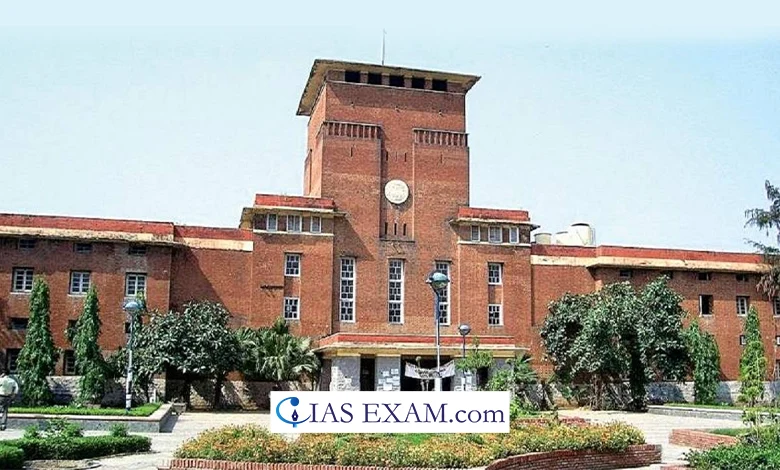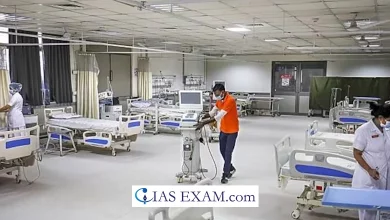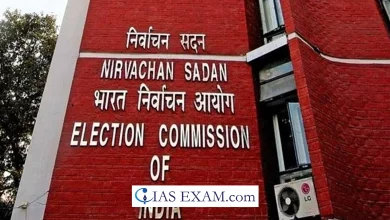Encouraging College Autonomy in India
GS Paper 2 - Govt. Policies & Interventions, Education

Context
Recently, there has been an increasing demand to provide sufficient autonomy to educational institutions and colleges. The National Education Policy of 2020 envisions a future where colleges will evolve into autonomous institutions enhancing their capacity for innovation and self-governance.
In lieu of this, UGC launched a new regulation in April 2023 in response to which the colleges seeking autonomous status have gone up.
NEP Recommendations for Higher Education
- GER in higher education to be raised to 50% by 2035. Also, 3.5 crore seats to be added in higher education. The GER in higher education was 27.1% in 2023.
- Holistic undergraduate education with a flexible curriculum can be of 3 or 4 years with multiple exit options and appropriate certification within this period.
- M.Phil courses will be discontinued and all the courses at undergraduate, postgraduate and PhD level will now be interdisciplinary.
- The National Research Foundation (NRF) will be created as an apex body for fostering a strong research culture and building research capacity across higher education.
- HECI will be set up as a single umbrella body for the entire higher education, excluding medical and legal education. Public and private higher education institutions will be governed by the same set of norms for regulation, accreditation and academic standards.
- Affiliation of colleges is to be phased out in 15 years and a stage-wise mechanism to be established for granting graded autonomy to colleges. Over a period of time, every college is expected to develop into either an autonomous degree-granting College, or a constituent college of a university.
Significance of granting Autonomy to Colleges
- Granting autonomy to colleges is essential for promoting innovation, enhancing academic quality, and fostering institutional excellence. Autonomous colleges can tailor their curriculum to meet the evolving needs of students and industries.
- Autonomy fosters a culture of accountability and responsibility among colleges, as they assume greater ownership of their academic and administrative decisions.
- Half of the top spots in the National Institutional Ranking Framework (NIRF) of 2023 are occupied by Autonomous Colleges which significantly strengthens the case for autonomy as a successful approach to achieve academic excellence.
- In India, higher education is increasingly embracing autonomy, with the number of autonomous colleges expected to reach 1,000 across 24 States and Union Territories. States like Andhra Pradesh, Karnataka, Maharashtra, Tamil Nadu, and Telangana lead this trend, boasting over 80% of the total autonomous colleges.
Issues with Autonomous Functioning of Colleges
- Imposing Limitation on Colleges – Some universities restrict the level of autonomy offered to colleges. One prevalent restriction is the setting of syllabus modification caps, which commonly allow just a portion, usually 25%-35%, to be changed. This barrier prevents institutions from exerting their autonomy, notably in curriculum creation and academic innovation.
- Delays in Recognition of Autonomy – One prominent issue that colleges encounter despite being granted autonomy by the UGC is that they often find themselves grappling with delays from universities in recognising this autonomy.
- Arbitrary Fees – Colleges may find themselves subjected to arbitrary fees imposed by the university for the purposes of affiliation. This approach not only undermines the autonomy of colleges but also raises questions about the transparency and fairness of such practices by the universities.
- Political Interference – Political concerns frequently affect appointments to major leadership posts, including as vice-chancellors and principals. Politically associated members can occasionally dominate college governance and decision-making institutions.
Suggestions to make Colleges more Autonomous
- The State Councils for Higher Education must ensure effective implementation of UGC regulations on autonomy. Universities must recognise the importance of addressing the concerns of autonomous colleges within the broader framework of higher education reform.
- Universities must create a supportive environment that encourages innovation, excellence, and inclusivity in higher education. This means empowering colleges to make independent decisions and take risks in order to improve the quality of education.
- As it is important for institutions to achieve NAAC/NBA accreditation to become eligible for attaining autonomy, implementing college Enterprise Resource Planning (ERP) software with accreditation data management software can be useful.
- There is a need for ensuring financial sustainability, as autonomous colleges should manage their finances independently, which can be challenging without proper planning and resources.
Way Forward
Autonomy for colleges is critical for generating innovation, improving academic quality, and cultivating institutional greatness. Autonomous colleges may modify their educational programs to fit the changing demands of students and organizations, pushing the boundaries of knowledge and contributing to social growth. Furthermore, autonomy promotes a culture of accountability and responsibility among colleges, increasing institutional efficiency and instilling a feeling of pride and identity.
SOURCE: The Hindu





.png)



